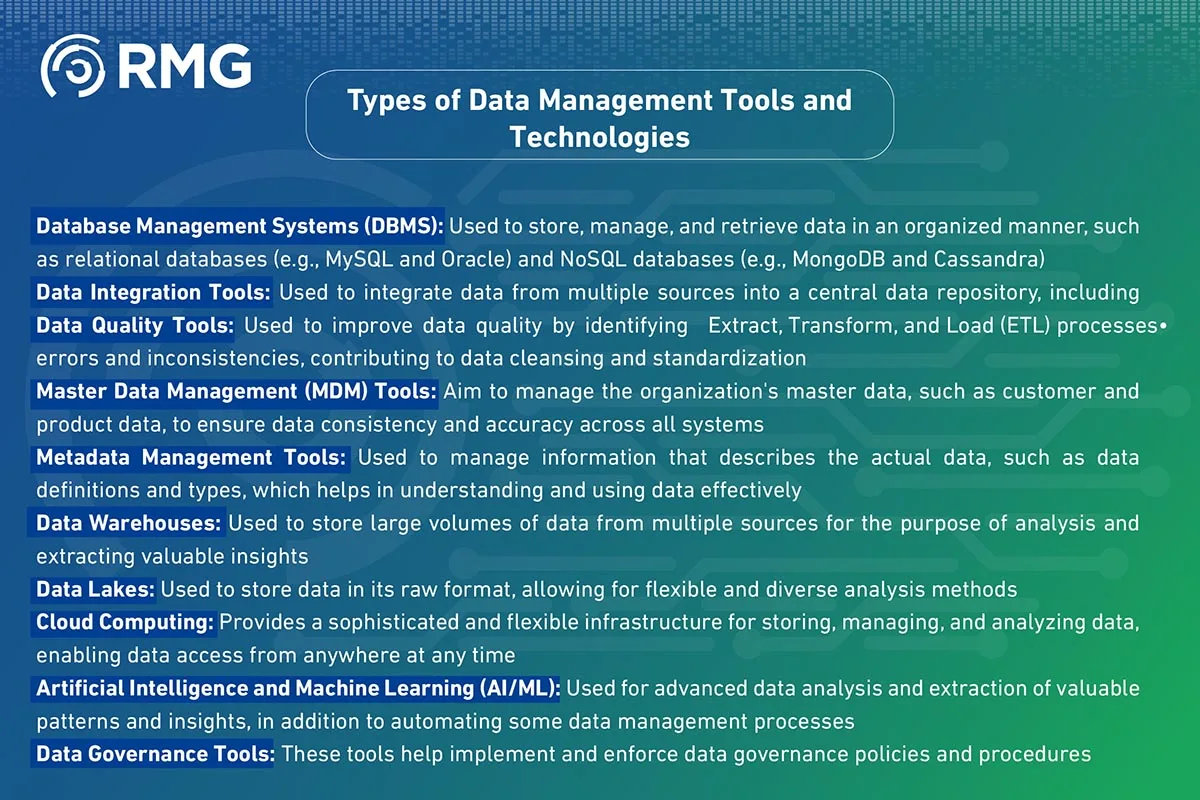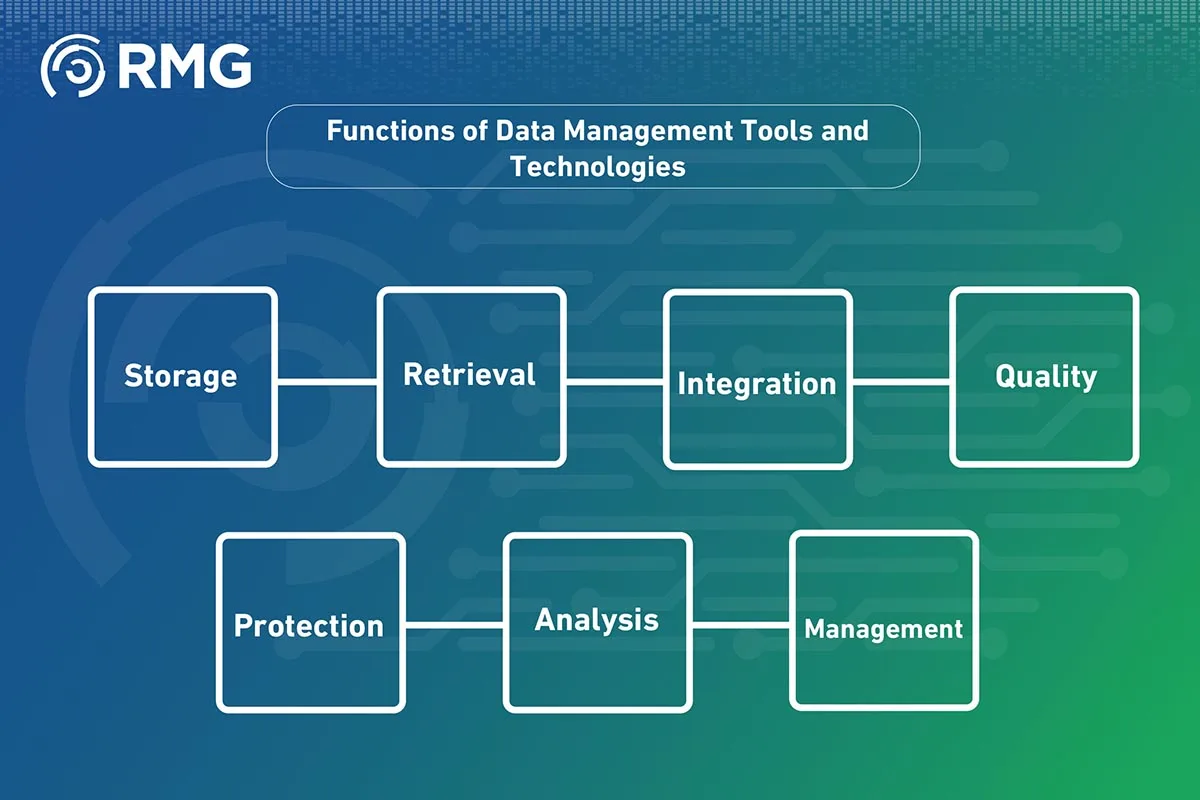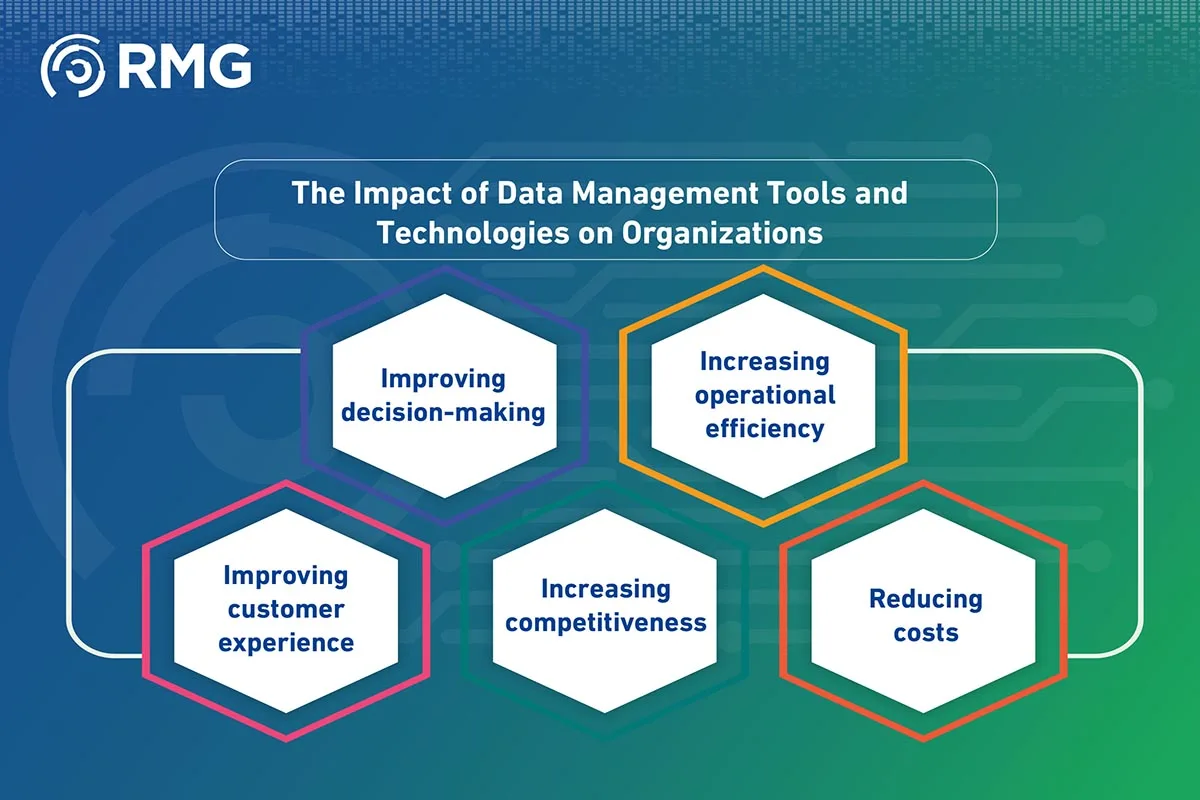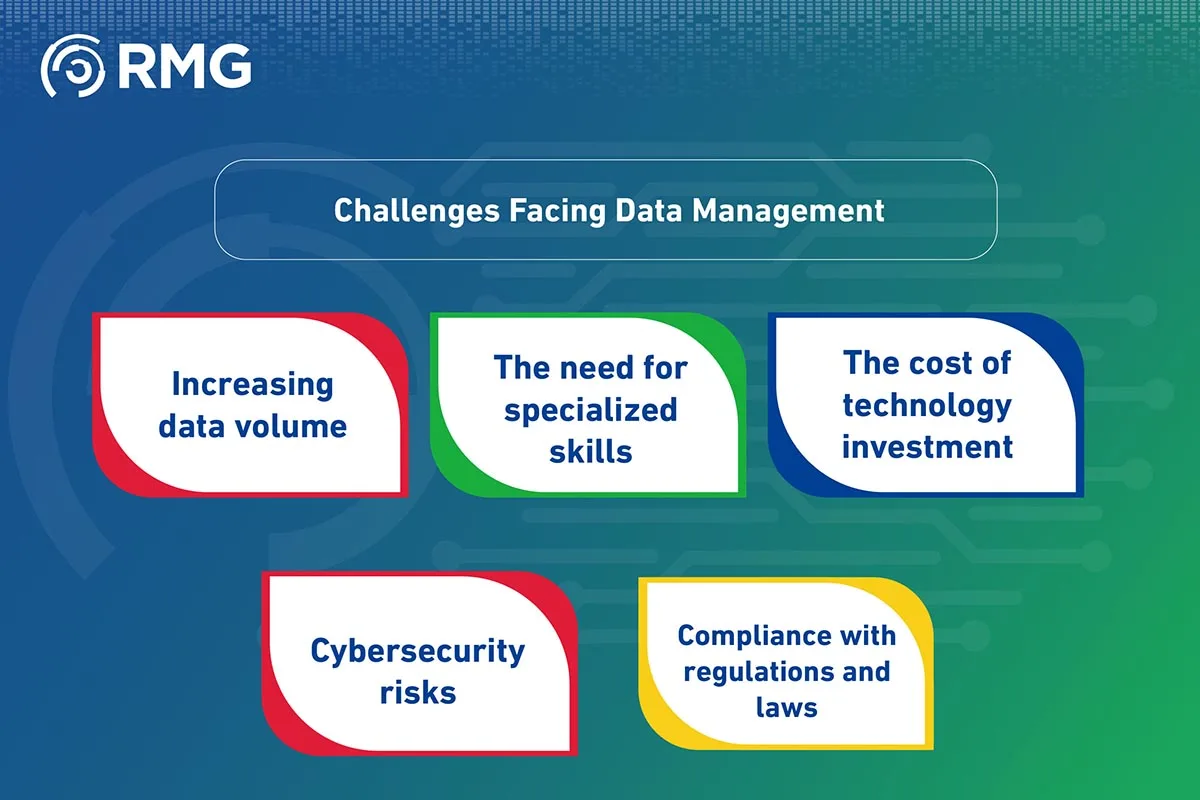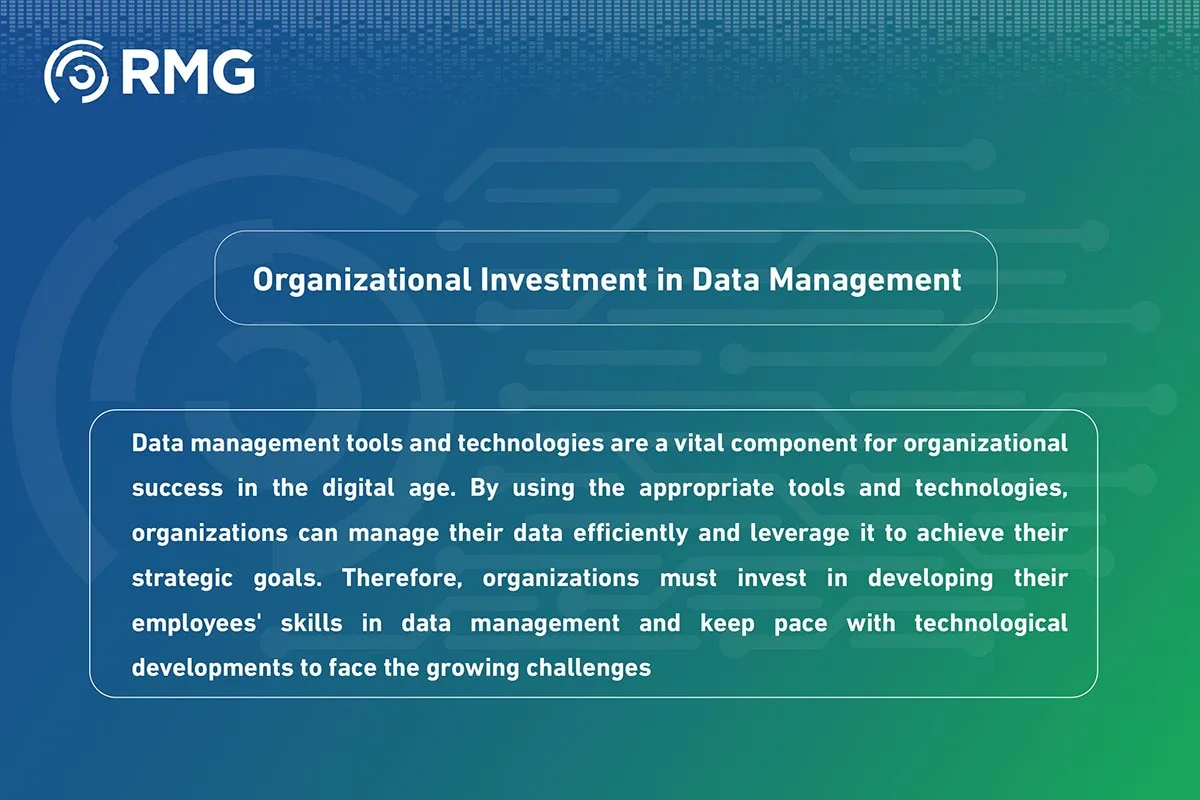Blog Body
In today’s digital age, data has become the cornerstone of modern organizations, representing a vital resource for strategic decision-making and performance enhancement. With the increasing volume of data and the diversification of its sources, the need for effective data management tools and technologies has become a pressing necessity.
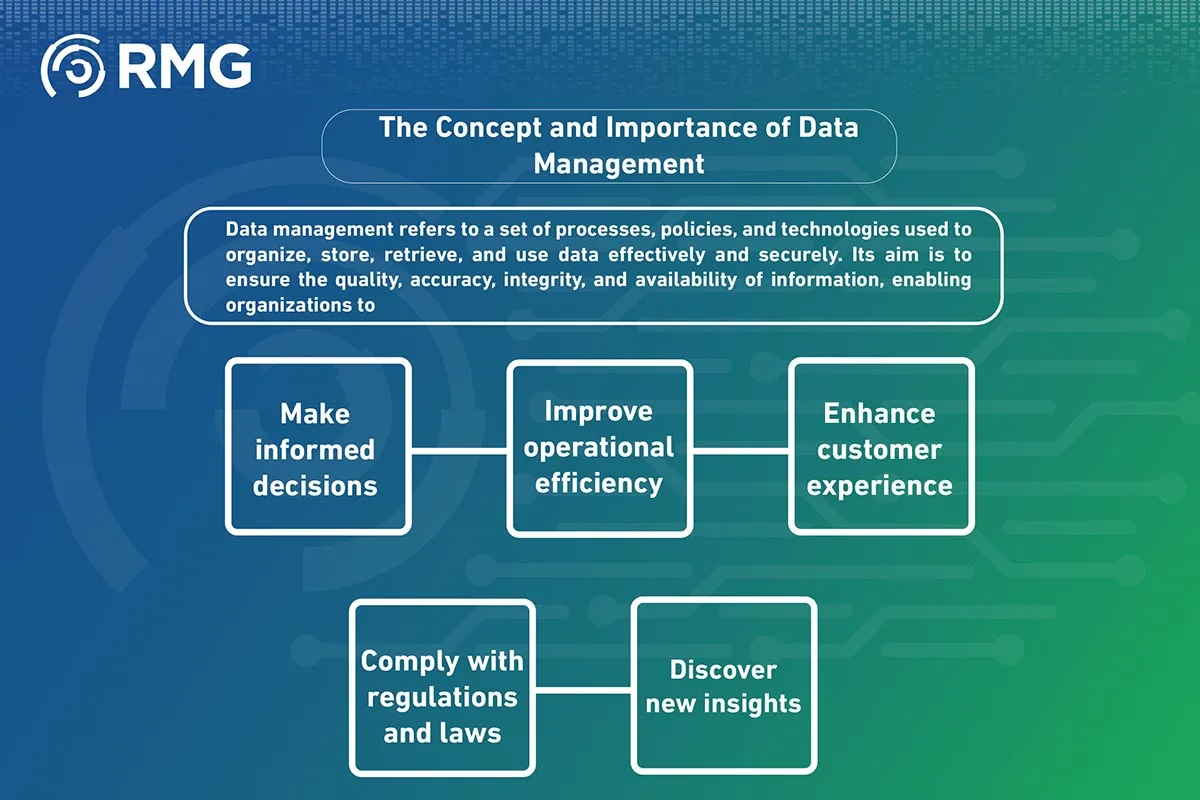
The Concept and Importance of Data Management
Data management refers to a set of processes, policies, and technologies used to organize, store, retrieve, and use data effectively and securely. Its aim is to ensure the quality, accuracy, integrity, and availability of information, enabling organizations to:
- Make informed decisions: By providing accurate, comprehensive, and high-quality data that helps in understanding trends, challenges, and opportunities.
- Improve operational efficiency: Through process automation and error reduction, which enhances productivity.
- Enhance customer experience: By providing personalized services that meet their needs and expectations.
- Comply with regulations and laws: By ensuring data protection and privacy.
- Discover new insights: By analyzing data and extracting valuable patterns and trends.
Types of Data Management Tools and Technologies
Data management tools and technologies encompass a wide range of technical solutions, the most prominent of which include:
- Database Management Systems (DBMS): Used to store, manage, and retrieve data in an organized manner, such as relational databases (e.g., MySQL and Oracle) and NoSQL databases (e.g., MongoDB and Cassandra).
- Data Integration Tools: Used to integrate data from multiple sources into a central data repository, including Extract, Transform, and Load (ETL) processes.
- Data Quality Tools: Used to improve data quality by identifying errors and inconsistencies, contributing to data cleansing and standardization.
- Master Data Management (MDM) Tools: Aim to manage the organization’s master data, such as customer and product data, to ensure data consistency and accuracy across all systems.
- Metadata Management Tools: Used to manage information that describes the actual data, such as data definitions and types, which helps in understanding and using data effectively.
- Data Warehouses: Used to store large volumes of data from multiple sources for the purpose of analysis and extracting valuable insights.
- Data Lakes: Used to store data in its raw format, allowing for flexible and diverse analysis methods.
- Cloud Computing: Provides a sophisticated and flexible infrastructure for storing, managing, and analyzing data, enabling data access from anywhere at any time.
- Artificial Intelligence and Machine Learning (AI/ML): Used for advanced data analysis and extraction of valuable patterns and insights, in addition to automating some data management processes.
- Data Governance Tools: These tools help implement and enforce data governance policies and procedures.
Functions of Data Management Tools and Technologies
Data management tools and technologies perform a set of essential functions, including:
- Storage: Securely and efficiently storing data.
- Retrieval: Easily and quickly retrieving data.
- Integration: Integrating data from multiple sources.
- Quality: Ensuring data quality and accuracy.
- Protection: Protecting data from unauthorized access.
- Analysis: Analyzing data and extracting valuable insights.
- Management: Managing the data lifecycle.
The Impact of Data Management Tools and Technologies on Organizations
Data management tools and technologies have a significant impact on organizational performance by:
- Improving decision-making: By providing accurate and comprehensive data.
- Increasing operational efficiency: Through process automation and error reduction.
- Improving customer experience: Through providing personalized services.
- Increasing competitiveness: By leveraging data to discover new opportunities.
- Reducing costs: By improving data management and reducing errors.
Challenges Facing Data Management
Organizations face several challenges in data management, the most prominent of which include:
- Increasing data volume: Making it difficult to manage large amounts of information from multiple sources.
- The need for specialized skills: Data management requires advanced technical skills.
- The cost of technology investment: The costs of data management tools and technologies can be high.
- Cybersecurity risks: Protecting data from cyber threats is essential.
- Compliance with regulations and laws: Organizations must comply with data protection and privacy regulations.
Organizational Investment in Data Management
Data management tools and technologies are a vital component for organizational success in the digital age. By using the appropriate tools and technologies, organizations can manage their data efficiently and leverage it to achieve their strategic goals. Therefore, organizations must invest in developing their employees’ skills in data management and keep pace with technological developments to face the growing challenges.














